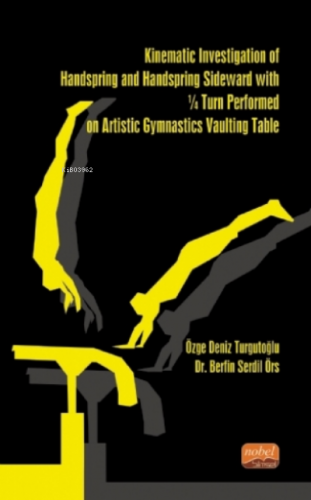Kinematic Investigation Of Handspring And Handspring Sideward With ¼ Turn Performed On Artistic Gymnastics Vaulting Table

Gymnastics is a quite technical event in terms of both judging and the movements performed. In artistic gymnastics locomotor systems of the gymnasts are affected and developed depending on the apparatus they compete and men compete with six apparatus. Besides, handspring and the handspring sideward with ¼ turn are the basic elements for more complicated vaults. For this reason, it is thought that the measurement of velocity in the last part of the approach run and kinematic analysis of the vault performances are important to better understand the movements by the coaches and athletes. It is thought that examining the kinematic parameters of these elements according to categories will be beneficial in determining the missing points in the performance of the gymnasts, preparing the right training program, and contributing to the coaches and athletes. Considering all this information, the aim of the current study was the comparison of the last 10 m running velocity and kinematic variables of the handspring and the handspring sideward with ¼ turn elements performed on the artistic gymnastics vaulting table according to categories (pre-juniors and juniors, male gymnasts).
Gymnastics is a quite technical event in terms of both judging and the movements performed. In artistic gymnastics locomotor systems of the gymnasts are affected and developed depending on the apparatus they compete and men compete with six apparatus. Besides, handspring and the handspring sideward with ¼ turn are the basic elements for more complicated vaults. For this reason, it is thought that the measurement of velocity in the last part of the approach run and kinematic analysis of the vault performances are important to better understand the movements by the coaches and athletes. It is thought that examining the kinematic parameters of these elements according to categories will be beneficial in determining the missing points in the performance of the gymnasts, preparing the right training program, and contributing to the coaches and athletes. Considering all this information, the aim of the current study was the comparison of the last 10 m running velocity and kinematic variables of the handspring and the handspring sideward with ¼ turn elements performed on the artistic gymnastics vaulting table according to categories (pre-juniors and juniors, male gymnasts).










